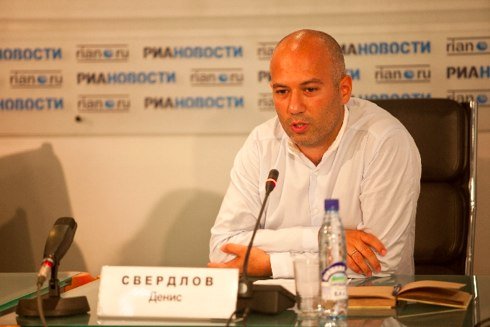At yesterday's Iota press conference in RIA Novosti, the company's CEO, Denis Sverdlov, said that litigation over illegally taken away frequencies from the company will not affect the timing of the launch of LTE. As planned, the network in Kazan will be launched first, during this year it is also planned to launch the network in 4 other cities, of which Novosibirsk and Samara are named. Next year, the company aims to cover about 30 more cities.
 Why does a loud scandal with frequencies not affect the operation of the network? Yota says that there is no reason to worry because initially the company claimed a range of 40 megahertz, received these frequencies, and no one encroaches on them. The new LTE networks will be launched on time, at these 40 Mhz.
Why does a loud scandal with frequencies not affect the operation of the network? Yota says that there is no reason to worry because initially the company claimed a range of 40 megahertz, received these frequencies, and no one encroaches on them. The new LTE networks will be launched on time, at these 40 Mhz.
The same additional 30 megahertz, which are the object of the dispute, is needed by the company to equalize the frequency spectrum in different cities and provide additional services. The company keeps additional services secret for the time being, however, many agree that we are talking about voice services, because on the basis of LTE, a standard has already been developed (awaiting approval), replacing the already incredibly outdated 2G voice communication. The standard 40 megahertz may be enough for a very fast Internet, but even this will not be enough for a modern user.
Innovator companies have repeatedly been put in the wheels. After Iota achieved a stunning, completely unpredictable success in just a year (600 thousand subscribers in 5 cities), there was a real threat of its becoming the fourth federal operator.
After all, LTE-based operators in Europe and the United States plan to launch voice networks to replace outdated 2G, and the leading players in the mobile market will not miss the opportunity to provide mobile devices with support for this standard.
As a result, Roskomnadzor behaves with respect to Iota as if different people work in it every day, making different decisions. July 27 and
On August 2, decisions on the issuance of frequencies for Iota by the same Roskomnadzor were invalidated. This is not the first cancellation of their own actions by Roskomnadzor. First, a ban was announced on the use of frequencies of the same range by two different technologies (from the same company), then it was canceled, then frequencies were issued, now these frequencies have been taken away, It is not quite clear what the next step will be with such a spread of opinions.
At the same time, Iota will still launch LTE in Kazan, and promises to cover both capitals with LTE Internet next year.
Iota — Life Hacker's Friends